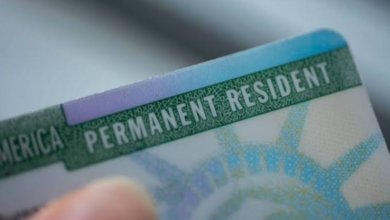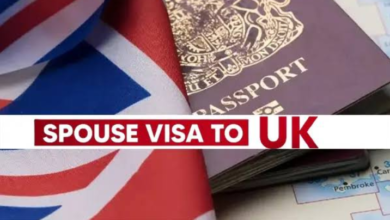How To Apply for UK Work Permit in 2025
Are you looking to continue your career path in the UK? If yes, then you are taking the right step to growth in a prosperous environment. With its thriving economy, innovative industries, and multicultural system, the UK is an attractive destination for international talent. However, the process of obtaining a UK work permit can be complex and time-consuming, requiring careful planning and attention to detail. However, you shouldn’t fret about this as this is why we have put this article together — for you! In this article, we’ll simplify the process for you, providing a step-by-step guide on how to apply for a UK work permit with ease.
About Working in the UK
Employment in the UK provides a combination of opportunities, rights, and responsibilities that depend on the country’s economy and strong legal system. There are features such as minimum wage, statutory sick pay, and the working week of 37- 40 hours with flexible working arrangements. Many companies in the UK also offers 28 days of paid annual leave, not including public holidays. Also, training and development in various careers are encouraged by companies offering different courses for employees and providing for various opportunities for growth.
Also, the work place is highly inclusive and discrimination is often prohibited by various laws. Additionally, many companies offer convenience such that employees can work from home on some days and on-site on other days. This remote and hybrid style, has become more widespread after the pandemic and is indicative of a greater flexibility in organizational environments in the country.
What is the UK Work Visa/Permit?
A UK work visa/permit is an official permission granted to anybody who is not a citizen of the United Kingdom to work legally in the country. There are many different categories of visa to suit different purposes, but the most well known is the Skilled Worker visa, which we would discuss in detail later in this article. This visa is one that demands an offer of employment from the employer who is licensed, and the position offered must be of a given skill level and pay grade. Such other visas are Global Talent visa which targets leaders in academia, arts, or digital technology, Graduate Visa among others.
Types of UK Work Visas in 2024
The UK offers various work visas and permits for foreign nationals and these include:
- Global Business Mobility Visa
- Graduate Visa
- UK Ancestry Visa
- Scale Up Visa
- Temporary Worker Visa
- Global Talent Visa
- Skilled Worker Visa
- High Potential Individual Visa
Among these, the Skilled Worker Visa is the most popular and widely sought by those aiming to work in the UK.
About the Skilled Worker Visa
The UK Skilled Worker Visa is used for those individuals who are internationally qualified to work for a licensed sponsor in the United Kingdom. Introduced in late 2020 as a replacement for the Tier 2 visa, this visa is relevant for positions that require skills at RQF Level 3 or above including UK A-level equivalents in the relevant occupations. Usually, it is issued for up to five years as stated in your Certificate of Sponsorship. Also, one has to remain with the employer who has sponsored the visa so that the visa does not become invalid. However, in case you want a shift in roles or employer, it is necessary to apply for a new Skilled Worker visa.
Furthermore, this visa can be renewed before expiry, and after spending five years in the United Kingdom as a Skilled Worker, one may apply for the Indefinite Leave to Remain (ILR) before applying for British citizenship after a year. Also, this visa requires the applicant to have a job offer and meet all other qualifying factors. If the Skilled Worker Visa is not suitable for you, there are other types of work visas as mentioned earlier.
Noteworthy, as of April 4, 2024, changes have been implemented to this visa. Thus, the minimum salary mandated for Skilled Worker visa is £38,700 per year, higher than the previous £26,200. Furthermore, the individual occupation thresholds have been raised depending on the median full-time wage for similar occupations in 2023. Skilled workers with prior existing visa before these changes did not need to meet the new required minimum salary if they switched jobs, applied for an extension or sought settlement in the UK, though their pay could be raised to the level of a resident worker. These also applied to people on the Health and Care Visa route for healthcare workers and the National Pay Scales for education workers. These changes are implemented in the Immigration Rules presented in Parliament on March 14, 2024, and applicable at the moment.
UK Skilled Worker Visa Eligibility
To qualify for a Skilled Worker visa, you must meet the following eligibility criteria. Noteworthy, failure to comply with the below criteria would make your application invalid and you’d likely be denied a visa.
1. Secure Job Offer from a Licensed UK Employer: Before applying for the visa, make sure you have a job offer from an A-rated employer in the United Kingdom. It has to be an approved job, meet at least the general minimum wage appropriate to the role, and require a legitimate CoS from your sponsor in the UK.
2. Certificate of Sponsorship (CoS): CoS is an official document provided by your UK employer and contains details of the sponsored job, salary, and period of sponsorship. It is important for your Skilled Worker visa application to prove that your employer is your sponsor to clear any doubts.
3. Minimum Salary: This new rule was implemented on the 4th of April 2024, where the minimum salary in order to qualify for the Skilled Worker visa was set at £38,700 per annum.
4. English Language Proficiency: As one of the measures of getting the Skilled Worker visa, the applicants will be expected to undergo an English language test. This could be done by producing the IELTS test results or even the credentials of previous education done in English.
5. Financial Support: To obtain a visa, he or she needs to prove that he or she has £1,270 in his or her personal bank account. This financial condition makes sure that you are capable of providing for yourself during the first one or two years of your living in that country and that you do not become a burden to the government. At times, your employer may offer you a letter in which he/she undertakes to reimburse you for your initial expenses upon your arrival in the United Kingdom
6. Employer Approval and Eligible Occupations: You must have an offer for a job from a firm that is on the list of the Home Office’s licensed sponsors. Moreover, your work must fall within the list of occupations that are admissible under the Skilled Worker visa category. Every occupation has a Standard Occupational Classification (SOC) code which determines whether it is eligible for sponsorship or not. You must be sure that your job meets the specific requirements and is classified under the current SOC codes recognized by the UK immigration services based on your employer.
7. Skill Level Requirement: The last prerequisite for the Skilled Worker visa is to show that you have at least an RQF Level 3, which is comparable to gaining an A-level qualification in the UK. This requirement helps to qualify applicants for a particular job and to match them with the type of job advertised in the UK job market.
UK Skilled Worker Visa Required Documents
1. Certificate of Sponsorship (CoS): The CoS is a digital document that your UK employer issues to you and contains details about the sponsored job, salary, reference number as well as the terms of sponsorship.
2. Proof of Job Offer: Get documents that prove that you have been offered a job from a registered firm operating in the United Kingdom. You can include information about the job including the salary offered for the job and any other conditions that come with the job.
3. Proof of Eligibility: Collect papers that confirm that your occupation falls under the category of the occupations that are allowed under the skilled worker visa program. It is good to attach evidence of satisfying the minimum skill requirement, which is usually verified through job classification numbers and academic credentials.
4. Proof of English Language Proficiency: If you consider yourself to be fluent in the English language, then it is advisable to attach documents that prove this in the application. This may be through the results that are gotten in standard English language tests such as the IELTS among others.
5. Financial Documents: You should also make sure that you have sufficient funds to support yourself during your stay in UK and this should be accompanied by a bank statement. For the support of the first period of stay in the country, you can include certified copy of recent bank statements or letter of sponsorship from the employer.
6. Police Clearance Certificate: Depending on your country of residence and your specific job, you may require a police Clearance Certificate proving that you are of good character.
7. Valid Passport: Ensure that your passport will remain valid for the duration of your planned stay in the UK and that it has at least one page available for visas.
8. Other Supporting Documents: There can be other documents, which will be required depending on the individual circumstances of the applicant. Such documents may consist of marriage/birth certificates, educational credentials, work history or record of a TB test done as advised based on the country of origin of the person.
UK Skilled Worker Visa Application Guide
1. Check your Eligibility: You can check your eligibility from the criteria mentioned above. If you meet the criteria, then continue with the following steps of application below. If you are not eligible then try to do things that make you eligible for this visa.
2. Secure Job Offer: This was explained earlier in this article, whereby one has to have an offer of employment from a licensed sponsor with permission to work in the United Kingdom. Your sponsor must provide you with the Certificate of Sponsorship (CoS) indicating your job title, salary, and conditions of sponsorship.
3. Gather Required Documents: When you have an employment offer, you should prepare other documents that will be required for the visa application such as proof of employment offer, proof of financial capabilities in the UK among others.
4. Complete Online Application: Once, the previous steps are done, download the application form from the Home Office website and fill it in. The form will differ depending on whether the applicant is in or out of the UK and whether the application is for a change of visa.
5. Pay Fees: Make the final payment for the application fee, biometric fee where applicable and the health care surcharge where applicable.
6. Upload Supporting Documents: Copy all relevant documents such as your CoS, language test results, etc.
7. Schedule Biometric Appointment: Make an appointment to provide your fingerprints and photo at a visa application centre or UK Immigration mobile app.
8. Wait for a Decision: If you have applied from outside the United Kingdom, you should expect a decision within about 3 weeks after submitting your application. If additional information is needed, the applicant shall be informed by the UK Visas and Immigration (UKVI). You also need to understand that response time may be influenced by certain conditions and the scope of the application and this is why you must handle your application carefully and be patient all the time.
Conclusion
It is not difficult to apply for a UK work permit as it may seem. If you were not too sure on how to go about applying for a UK work permit, the steps highlighted in this guide can be of help and will enhance your chances of landing the permit. It is essential to select the appropriate type of work visa, collect all the required papers, and to fill the application properly.









